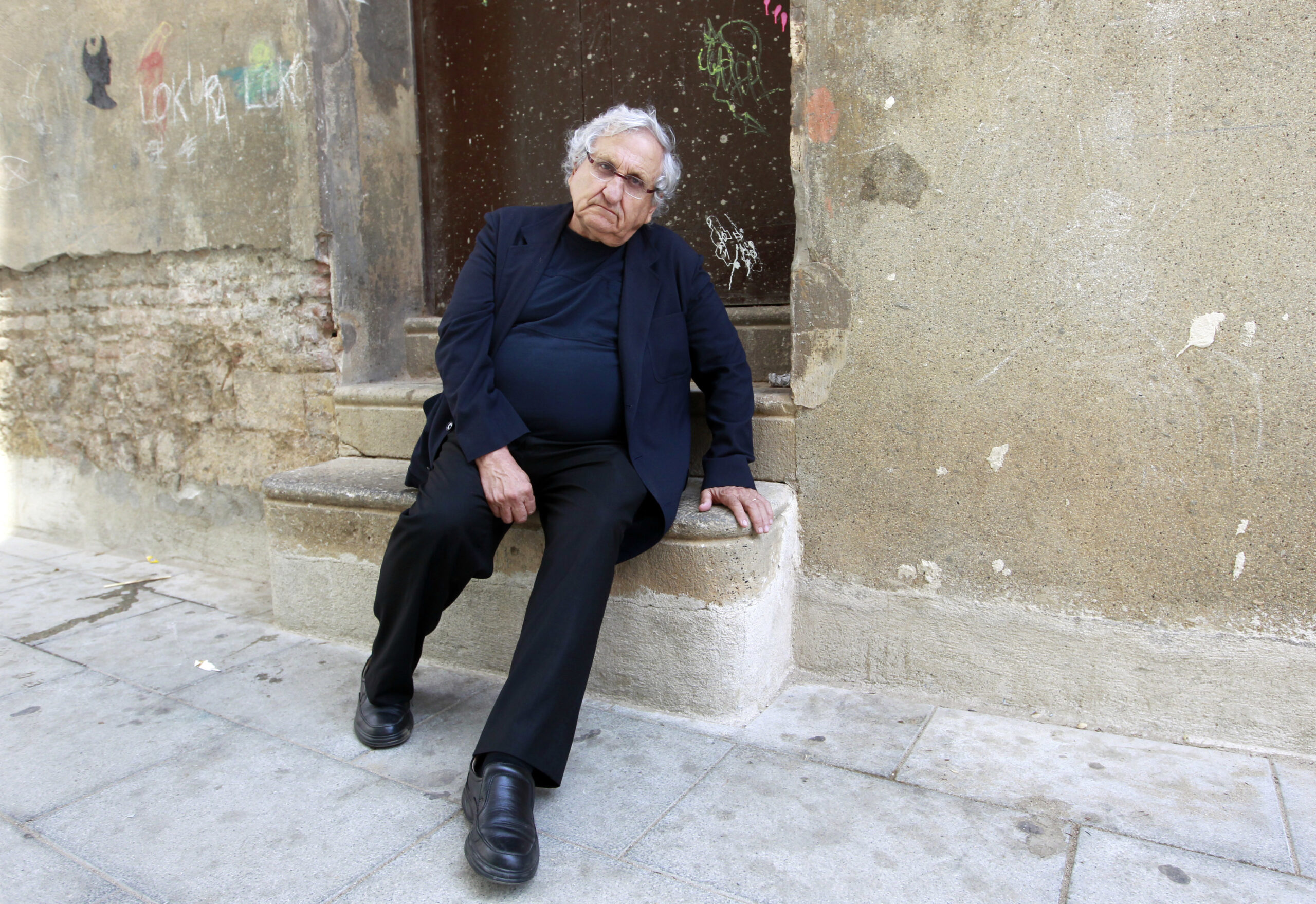Cancer has ended the life of Abraham Buli (his well-known nickname) Gabriel Yehoshua and fate has wanted it to be hours before the start of Book Week in Israel. The event that fills the squares and shopping malls with books and readers is left this year without the physical presence, although not literary and emotional, of an icon of Israeli culture. As a rich and extensive legacy after the announcement of the Ichilov Hospital in Tel Aviv, many stories, multiple characters, work and talent united with harmony in the writing and a courage displayed until the last of his days.
A.B. Yehoshua was a novelist, essayist, playwright, intellectual, teacher, lecturer, Israeli, Jew, Sephardic, left-wing Zionist very concerned about the present and future of his country, grandfather, father and widower. And in the end, a tired man but satisfied with what he had accomplished and aware that he was in the final stretch of a life that began 85 years ago in Jerusalem. “My wife Ika died six years ago and many good friends also abandoned me. My time has also come to go and rest. My life has been good and I hope death is quick and easy,” Yehoshua said in one of his last interviews. waiting, in absolute inner peace and without regrets, for his death today mourned by many readers starting with the president of Israel Isaac Herzog.
“Buli was one of the greatest writers and storytellers of the State of Israel. An award-winning writer and playwright, who gave us the greatest award of all: his unforgettable work that will continue to accompany us for generations,” Herzog said of the award winner. Israel. “His works reflected us like an accurate, clear, loving and sometimes painful mirror. He showed us a mosaic of deep feelings,” added the Israeli president after revealing the last conversation a month ago: “I tried to strengthen him and make him see how important he is for the soul of our nation.
Born on December 19, 1936 into a Sephardic family from Jerusalem from Morocco and Greece who had settled in the Holy City in the 19th century, he performed compulsory military service as a paratrooper. He subsequently studied Hebrew Literature and Philosophy at the Hebrew University of Jerusalem. Since his first work (fiction dealing with something as real as the death of an old man) in 1963, Yehoshua has written more than 30 books. Many of them were translated into dozens of languages and adapted for theater, film and television. Among his best-known and most successful works are The Lover, A Late Divorce, Journey to the End of the Millennium, Lord Mani, and A Woman in Jerusalem (for readers who could only read his works in Hebrew, Shlichutó shel ha-memuné al mashavei ehosh).
Writing was his life, but also the creative way to overcome what he called “stagnation”. “It gives me the strength to be in continuous movement, to create characters, tell stories, investigate, always maintain curiosity, etc,” he once said.
Yehoshua, identified with the left in general and the Meretz party in particular, was the oldest of the great trio formed with his two friends who, and he knew, were more famous in the world, Amos Oz (1939-2018) and David Grossman. Three intellectuals representing different genres, personalities and styles made a resounding common ideological front both against the construction of Israeli colonies in the territories occupied in the 1967 war and in favor of the creation of a Palestinian state alongside Israel. But in recent years, and like many on the left, Yehoshua has been very pessimistic about a resolution of the conflict based on the two-state formula and suggested other ways out of the labyrinth, which has upset his brother Amos Oz.
“We have reached a point where there seems to be no way out. Taking this unit apart and turning it into two states is like separating two conjoined twins. I have come to the conclusion that the two-state solution is impossible so we need a new idea.” “, Yehoshua told me that he was not only criticizing his country and specifically its most nationalist sector for the path adopted after the 1967 war, even saying that “the occupation in the West Bank is a cancer”, but also the Palestinian leaders for “torpedoing any possibility of two States rejecting it, for example, when it was very close in the negotiation with Barak and Olmert”. The writer, always direct but never unfriendly, opened the doors of his house to me for the first time in the small town of Givataim before the outbreak of the disease in 2020 and after the blow that was even worse for him: the death of his wife for more than 50 years and first reader.
Surrounded by books and memorabilia in a flat with a stunning view of Tel Aviv, Yeshoshua returned to his childhood in Jerusalem. To his father, (“a good and attentive father,” he pointed out) a prominent orientalist who wrote about the Sephardic Jewish community. and its Arab neighbors before the war of 1948. “We were afraid that Jordan would invade us. We were in the refuge due to the bombing. After the war, Jerusalem was divided,” he told about a city that today he identified much less than with Haifa where he lived much of his life.
“He was one of the great writers in Hebrew and a very special person”, the Minister of Culture Chili Tropper said goodbye to him, noting with relief that Yehoshua was lucky enough to be able to witness the premiere of the film in his honor a few months ago in Jerusalem and , thus, receive the applause of the entire audience delivered to the writer and the person. The title of the documentary takes on another dimension feared by many but expected by himself: “The last chapter of A.B. Yehoshua.”
Conforms to The Trust Project criteria
















